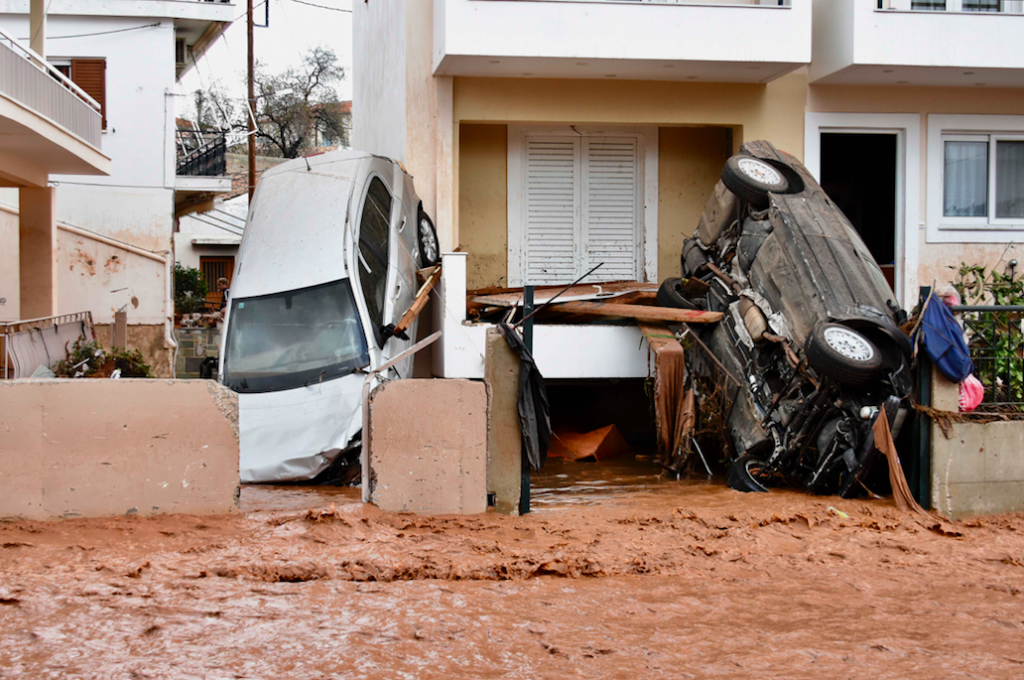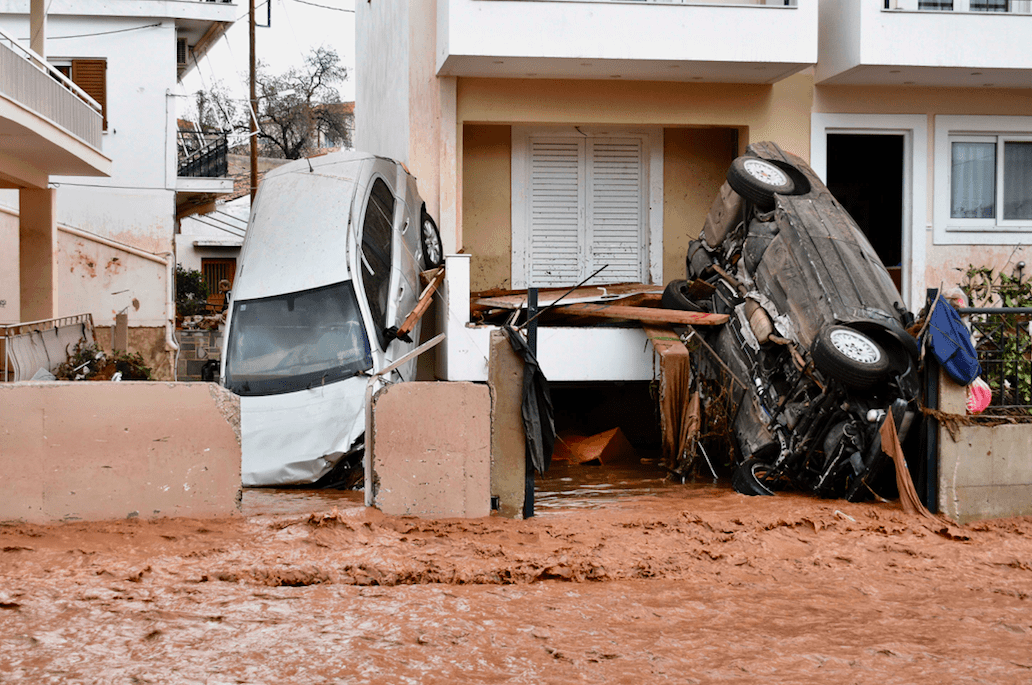
by Aggelos Skordas
Greece’s General Inspector of Public Administration published a report regarding the causes that led to last month’s flash floods in Mandra, on the western outskirts of Athens. According to Inspector General, Maria Papaspyrou, apart from the extreme intensity of the weather conditions, bureaucracy and human factors also played a crucial role in the tragedy that claimed 24 lives. Specifically, in her report Papaspyrou explains that public services and agencies along with the local authorities distinctively delayed in planning and implementing flood protection work.
“Fixations and inflexibilities in routine issues as well as wrong evaluation of the priorities impeded the construction of the necessary flood protection works in the region”, she said, adding that if both the state’s mechanism and the citizens were responsible the tragedy could have been avoided. The municipal bus depot of Mandra built over one of the filled-in streams is a distinctive example. Papaspyrou further explained that responsibilities should also be sought in the past when various public infrastructure (such as the old national road linking Athens with the city Thebes) and private constructions were erected over the two major filled-in streams while the necessary water drainage pipes were either too small or they were not built at all. “They did not take under consideration that Mountain Pateras has a rocky ground that cannot contain rain water”, she pointed out.
The report, which is characterised as “interim” due to the ongoing investigation, has already been sent to the public prosecutor.
On November 15 the extremely heavy rainfall that started early in the morning and continued until midday on the western outskirts of Athens, left flooded roads, which turned to muddy torrents, while hundreds of homes and businesses were severely damaged leaving hundreds homeless. Buildings collapsed, cars, motorbikes and trucks were thrown across the streets, while firemen and rescue squads were searching on the debris for more than seven days to recover the bodies of those missing.

